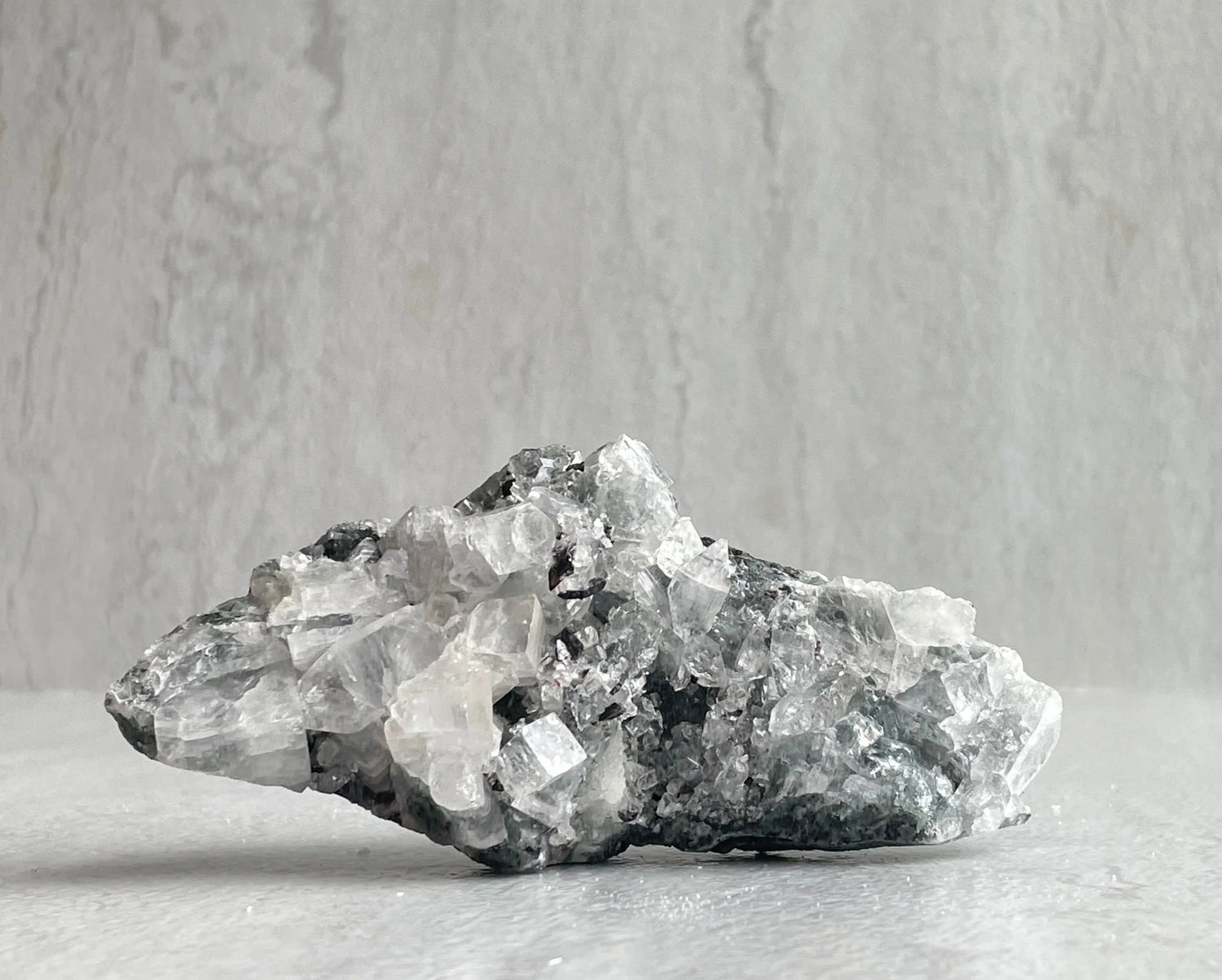Hailed as the "stone of light," Apophyllite transcends its physical form, elevating spiritual awareness and intuition. This radiant crystal becomes a valuable companion for meditation, opening doors to higher realms of consciousness.
Origins of Apophyllite & Use
Originating from regions like India, Brazil, and Iceland, apophyllite presents a diverse array of colors, ranging from clear and white to vibrant greens, yellows, and pinks. What truly sets this crystal apart is its distinctive crystal structure—tetragonal prisms with a square base—often forming intricate pyramidal clusters that add to its aesthetic allure.
Beyond its visual appeal, Apophyllite has earned a reputation for profound metaphysical properties. It is believed to forge a deep connection with the spiritual realm, acting as a conductor for enhanced intuition and facilitating spiritual growth. Its calming energy finds a place in meditation practices, offering solace and reducing stress and anxiety. Apophyllite, a profound cleanser of negative energy, serves as a gateway to higher purpose, astral travel, and clairvoyance. By connecting with the heart chakra for love and trust, and the third eye for infinite wisdom, it extends to the crown chakra, exposing you to your innermost thoughts, angels, and ancestors.
Apophyllite: Your Companion on the Journey of Self-Discovery
Apophyllite isn't just a crystal; it's a companion on your journey of self-discovery and metaphysical exploration. Embrace its calming and healing energies, allowing this enchanting crystal to guide you towards a deeper understanding of yourself and the universe. May Apophyllite be your magical ally, adding a touch of wonder to your mystical adventure.
| Chemical Classification | Phyllosilicate mineral |
| Chemical Formula | KCa4[Si8O20]6·8H2O |
| Crystal system | Tetragonal |
| Color | Colorless, white, gray, green, yellow, pink, purple |
| Streak | White |
| Mohs Hardness | 4.5-5 |
| Transparency | Transparent to translucent |
| Occurrence | In basalt and other volcanic rocks, also in hydrothermal veins and cavities in metamorphic rocks |
| Formation | Forms in volcanic rocks and hydrothermal veins as a result of the interaction of fluids with the host rock |





